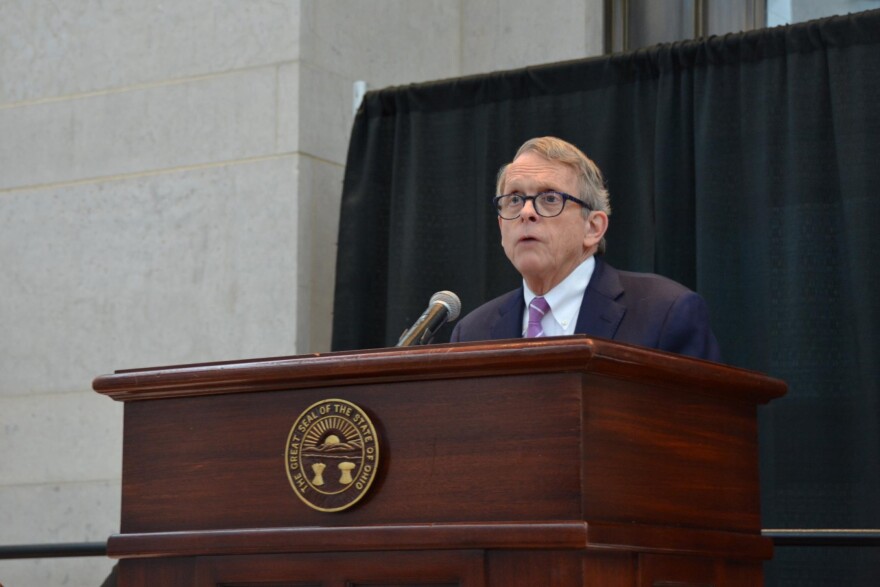Gov. Mike DeWine and leaders of his program to fight opioid abuse are meeting with local advocates from around Ohio to share ideas.
As he spoke at the beginning of the meeting, DeWine repeated the caution he issued earlier this month when he took office.
"We will not see immediate results,” DeWine said. “We all want immediate results and a lot of what we do in government, we can get pretty quick results. But probably the most important things we can do takes time.”
But DeWine said when it comes to taking action to stem the opioid crisis facing Ohio, time is of the essence. He told the crowd that he, along with leaders in his administration, are in the process of developing a comprehensive program to treat addiction and mental health problems, as well as prevent them in the first place.
"One of the things that we really intend to do in this administration is really focus on prevention,” he said. “And one of the ways we want to do prevention is directly in school, K-12, every kid, every year. No matter where they are – something that's age appropriate and something that's proven to work.”
Leaders from opioid prevention, education and recovery groups said whatever the state does, it needs to realize the problem does not respond to a "one size fits all" approach. Judy Wortham Wood of Holmes County explained the Amish population in her community has special cultural needs not addressed in many existing programs.
"In one of our Amish trainings, we could not use any technology for good reason, so we had to modify the program," Wortham Wood explained.
DeWine says he understands the need for programs to fit and be flexible to accommodate local communities.
“It’s a balance of culturally sensitive, locally driven, applicable to the community but at the same time, try to have something that is evidence based," DeWine said.
That last part is important, because some of the things providers say are proving to be most effective right now – things like peer-based support and sober housing – lack enough funding to make them available to many who could benefit.
DeWine was not the only state leader who was interested in hearing what the local providers were saying. House Speaker Larry Householder (R-Glenford) stood at the back of the room as the providers called for funding more evidence-based programs.
"I think that's very refreshing,” Householder said after the meeting. “For those of us who are good stewards of Ohio's tax dollars, it's refreshing to know our partners at the local level are saying, 'Hey, make us prove it.' And I was really encouraged by that.”
Householder said he agrees "one size fits all" is not a good approach.
DeWine wants to use ideas from meetings like this one to develop a comprehensive prevention and treatment plan that could be funded in the upcoming two-year state budget. Householder and his fellow lawmakers will likely have plans of their own, too.






